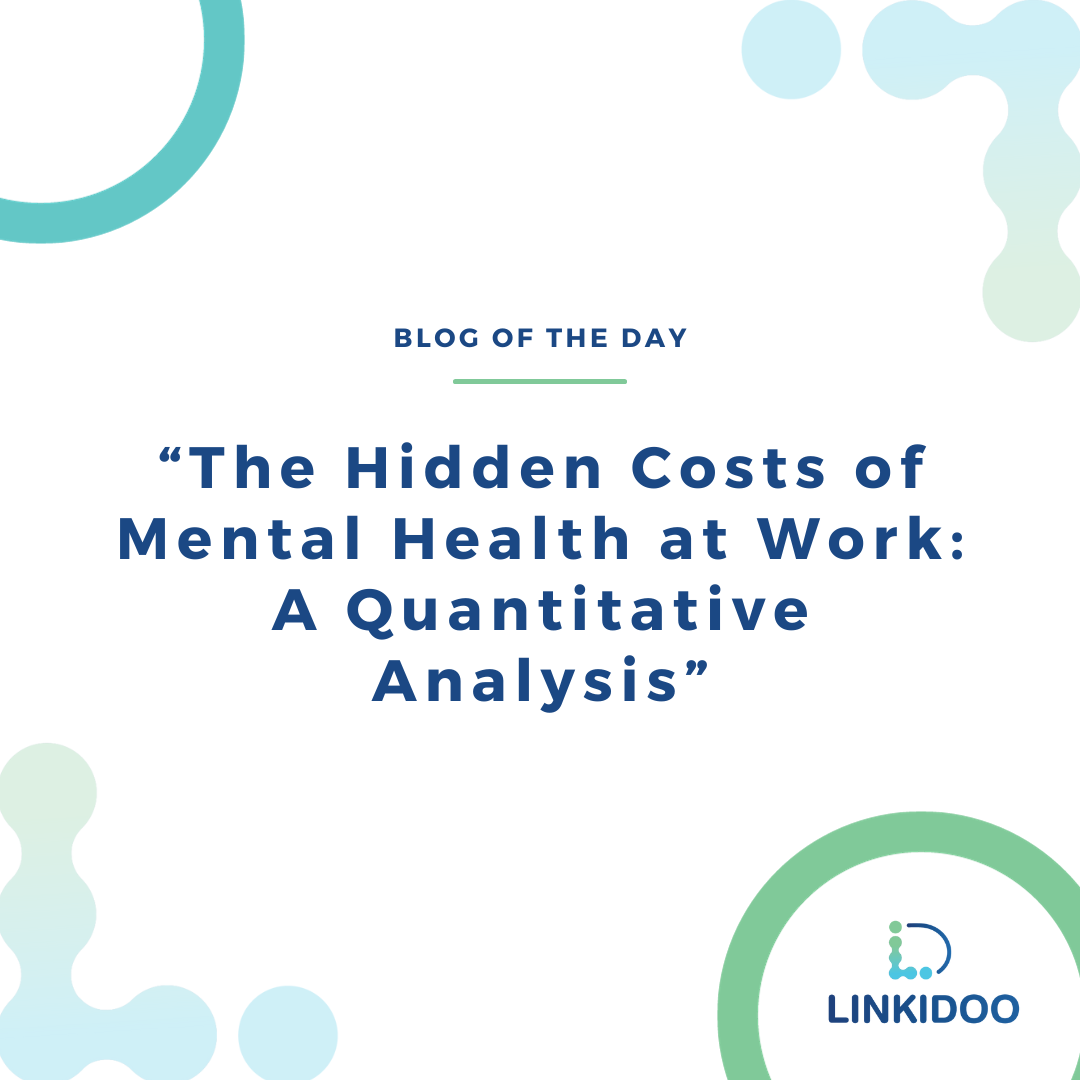The Hidden Costs of Mental Health at Work: A Quantitative Analysis
Advice
The Prevalence of Mental Health Issues
According to a survey conducted by the World Health Organization (WHO), depression and anxiety disorders cost the global economy an estimated $1 trillion per year in lost productivity. In the United States alone, approximately 20% of adults experience a mental health disorder in any given year, with a significant portion of these individuals being part of the workforce.
A study published in the Journal of Occupational Health Psychology found that around 61% of employees in the U.S. have experienced a mental health issue in the past year. Furthermore, a report by the Center for Workplace Mental Health revealed that untreated mental health conditions result in an average of 5.3 hours of lost productivity per week, per affected employee.
The Economic Impact
The economic implications of mental health issues at work are staggering. In the U.S., the National Institute of Mental Health (NIMH) estimates that mental illness costs employers $193.2 billion annually in lost earnings. These costs manifest through absenteeism, presenteeism (employees being present but not fully productive), and increased healthcare expenses.
The Connection to Employee Productivity
A study conducted by Harvard University researchers found that employees with untreated depression are absent from work an average of 1.5 times more often than their mentally healthy counterparts. Moreover, the same study found that depressed employees lose, on average, 27.2 workdays per year due to decreased productivity compared to non-depressed employees.
The Benefits of Mental Health Support
Investing in mental health support programs can yield significant returns for employers. According to a study published in the Journal of Occupational and Environmental Medicine, every dollar invested in employee mental health programs resulted in an average return on investment (ROI) of $3.27 through increased productivity and reduced absenteeism.
A separate study published in the Journal of Occupational Rehabilitation revealed that employees who received mental health support services were 33% more productive than those who did not. Additionally, a survey by Deloitte found that companies that prioritize mental health report higher employee morale, greater engagement, and improved retention rates.
Normalizing Mental Health in the Workplace
As mental health continues to be a paramount concern, it is clear that addressing it is not just a matter of empathy and compassion but also a sound business decision. Normalizing mental health in the workplace and implementing resilience mental health programs can be key strategies for creating a more supportive and productive work environment.
Mental Health Daily Check-In and Employee Assistance Programs
Implementing regular mental health daily check-ins and providing access to Employee Assistance Programs (EAPs) can help employees manage their mental well-being more effectively. These measures contribute to mental health and productivity in the workplace.
Wellness Mental Balance and Office Space
Promoting wellness mental balance and considering how your office space impacts employee well-being can lead to a healthier and happier workforce. Thoughtful office design can positively influence employee morale and mental health.
Career Development, Employee Retention, and Morale
Investing in career development opportunities can enhance employee retention and boost employee morale. Employees who see a clear path for growth are often more engaged and satisfied.
Workplace Strategies for Mental Health
Employers can also implement various workplace strategies for mental health to foster a more supportive and mentally healthy work environment. Addressing normalizing mental health in the workplace through these strategies can lead to a more productive, resilient, and sustainable workforce.
Conclusion:
The quantitative data presented in this article underscores the critical importance of addressing mental health in the workplace. The prevalence of mental health issues, their substantial economic impact, and the direct correlation between employee well-being and productivity cannot be ignored.
Investing in mental health support programs not only benefits employees by improving their overall well-being but also offers a compelling ROI for employers. By recognizing the quantitative evidence of the hidden costs of mental health issues at work and taking proactive measures to support employees, organizations can create a more productive, resilient, and sustainable workforce.
As mental health continues to be a paramount concern, it is clear that addressing it is not just a matter of empathy and compassion but also a sound business decision.
Sources:




